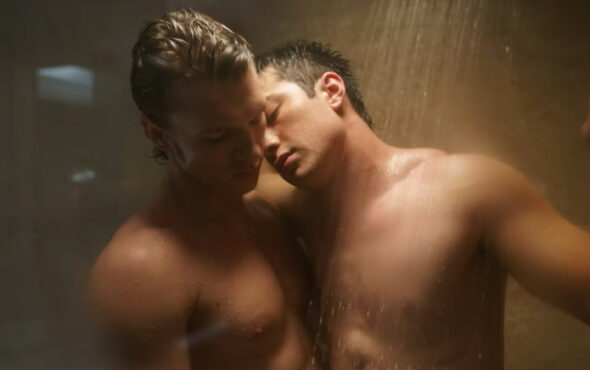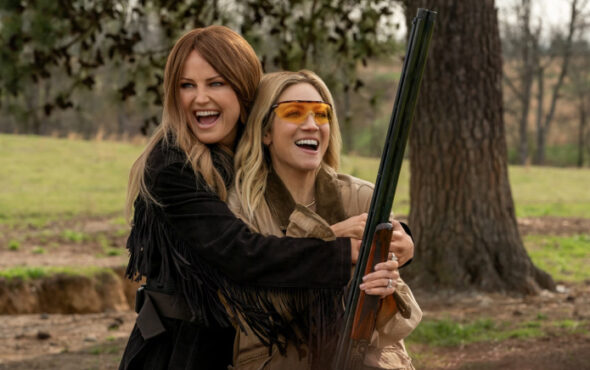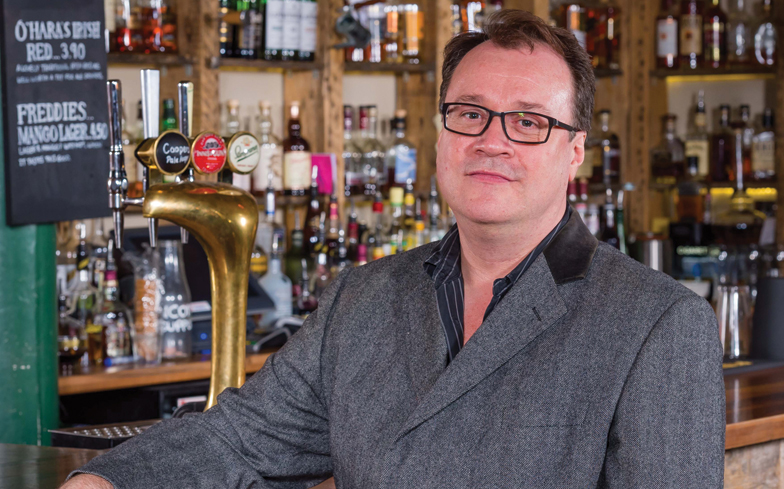
“More gay burgers! More gay burgers! I hope I get killed this afternoon and those are my last words – my dying request!”
Russell T Davies is discussing the purpose of Pride in 2018, and inevitably the conversation has turned to the ‘c’ word – commercialisation. In recent years, we’ve been sold ‘Pride roses’ at the supermarket, ‘rainbow flat whites’ in coffee shops and a glittery array of ‘Pride burgers’ on Deliveroo. Doesn’t it all feel a bit reductive – or worse, exploitative?
“Well, Skittles did the white bags didn’t they,” Davies adds, referencing the confectionery brand’s decision to rest its usual rainbow packaging last Pride season in deference to the LGBTQ community. “And do you know what, you can be cynical about it and say that companies are making a bit of money out of us. But there are bigger wars to be fought. Point your guns in the right direction.”
Davies’s warm, Welsh-accented voice becomes more animated. “And actually, don’t tell me that someone in that company, probably someone on the board, didn’t try saying, ‘Well, these sweets are for children. Should we be remotely connecting them with LGBTQ politics? Why are you connecting gays with the children?’ I bet there were battles, and the fact you’ve ended up with this great big naff commercial project at the end means those battles were won. So, good.”
Davies has no doubts that Pride still plays an important role in queer visibility and the fight for equal rights. “In the UK, we’re always in the shadow of America, and they have a Republican President,” he explains. “And Republicans are so profoundly anti-gay. It’s only the west and east coasts that are stopping them from doing anything about it, thank God. And this year, there are so many issues of trans rights to fight for. So we do all need to walk down the street side by side with our drag queens and get the police dancing with us as we march. And what a lovely, lovely thing that is.”
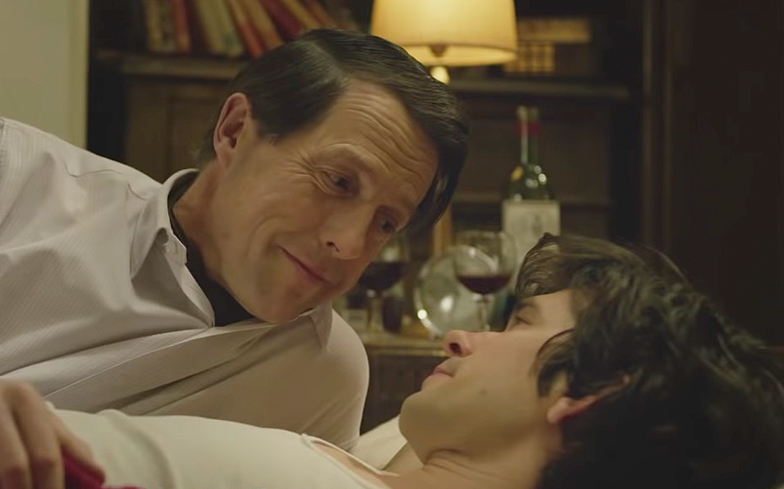
Davies is both thoughtful and playful as he chats on the phone from his Swansea home – he and his partner divide their time between the Welsh city, where Davies was born and raised, and their other home in Manchester, where his shows Queer as Folk and Cucumber were set. He’s currently promoting his brilliant BBC miniseries A Very English Scandal, which dramatises a dark, bizarre and very queer interlude in 1970s politics when MP Jeremy Thorpe was tried for conspiring to murder his former lover, Norman Scott.
The fact Hugh Grant and Ben Whishaw were cast as Thorpe and Scott, and Stephen Frears (The Queen, My Beautiful Laundrette) agreed to direct, tells you quite a lot about Davies’s writing and professional reputation.
Davies has been super-prolific since he started writing for TV in the early 1990s, but he’s probably best known for two towering achievements: overseeing the BBC’s revival of Doctor Who in 2005, and creating Channel 4’s groundbreaking 1999 drama series Queer as Folk, which chronicled life in and around Manchester’s gay village. It was later adapted into an equally influential US series, set in Pittsburgh and also called Queer as Folk, which ran for five seasons.
In 2018, which show does Davies get asked about more? “Well, it’s swinging back now. It was Doctor Who for years and years. But given everything we’re talking about today – queer rights, trans rights, what’s going on in America with the Republican president – it’s swinging back to the gay stuff, which is good, really. Because to be blunt, it’s more important.”
Many gay men from several generations can remember the first time they watched Queer as Folk’s launch episode; its famous sex scene was risqué at the time and remains incredibly hot to this day. Visit the gay quarter in pretty much any city in the world and you’ll see Queer as Folk DVDs for sale. It’s become iconic, part of the queer canon. “That’s an enormous compliment – thank you,” Davies says modestly, though I can’t be the first gay to get misty-eyed over Queer as Folk in his presence. “I’m immensely proud of that show. I remember once being in Miami and flicking through all the different TV channels in my hotel room – and suddenly there were two men kissing. It was the American Queer as Folk, and it was the only channel where two men were kissing. I remember sitting there thinking, ‘I’m glad this exists. I’m glad I did this.'”
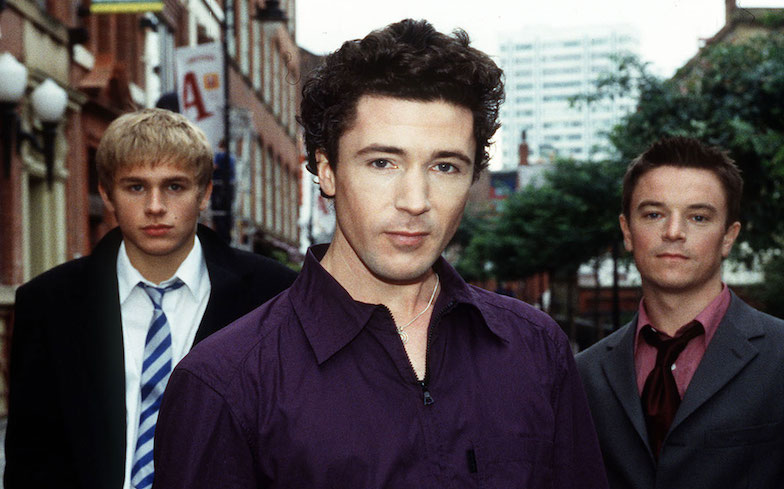
Davies returned to gay life in Manchester for 2015’s Channel 4 drama series Cucumber, which centred on a gay man called Henry’s mid-life crisis, and Banana, its E4 companion series focusing on younger characters from across the LGBTQ community. It was a dazzlingly ambitious project which tackled homophobia head-on and ultimately proved very moving, but the reaction from queer viewers wasn’t as universally ecstatic.
“I love those shows,” Davies says today, bullishly. “Do you know what, to be honest, I kind of think everything Henry went through in Cucumber – one day people will turn around and say, ‘that’s very true’. I think some people didn’t get Henry, and that wasn’t because there was anything wrong with the performance or the writing. I think he’s a gay man who’s not quite understood yet because we don’t see many people like him [on screen]. We see simpler versions of gay men. I stand by everything I wrote in Cucumber. And so does Channel 4, in fact. Fuck complaining, I won a BAFTA for it! People love to paint it as a bit of a disaster but it actually did quite nicely. I’m very proud of it.”
At this stage in his career, and still playing a key role in improving queer representation on screen, does Davies feel like an elder statesman of the LGBTQ community? “I do and I quite like it, but I know it means I come in for a bit of flack,” he replies candidly. “On Saturday I met Martin Sherman – the seminal gay writer who wrote Bent. It was such an honour to meet him, and I thought, ‘God, if I’m on some kind of list that includes people like that, which I think I might be, then that’s really lovely.’ If you can list me next to Martin Sherman, I’m a very happy man, and I’d be churlish to complain about any problems that come with that.”
Davies says that as a writer who explores LGBTQ themes, it’s part of his job to remain highly engaged – “almost an expert” – on issues affecting our community. “It’s always a difficult time for us,” he says plainly. “Let’s face it – Theresa May is going to be out of office soon, possibly very soon. We could end up with a Prime Minister who sets us right back. That could happen with the stroke of a pen, any day now. So as a community, I think we have to be on our guard. Things aren’t too bad at the moment, we seem to have all the laws on our side, but just wait for that to change. Just wait for a more conservative government to get into power, which seems to be where we’re heading. So we shouldn’t relax at all. We need to keep chipping away. The battle never really ends.”
A Very English Scandal is available to stream on BBC iPlayer now in the UK.


